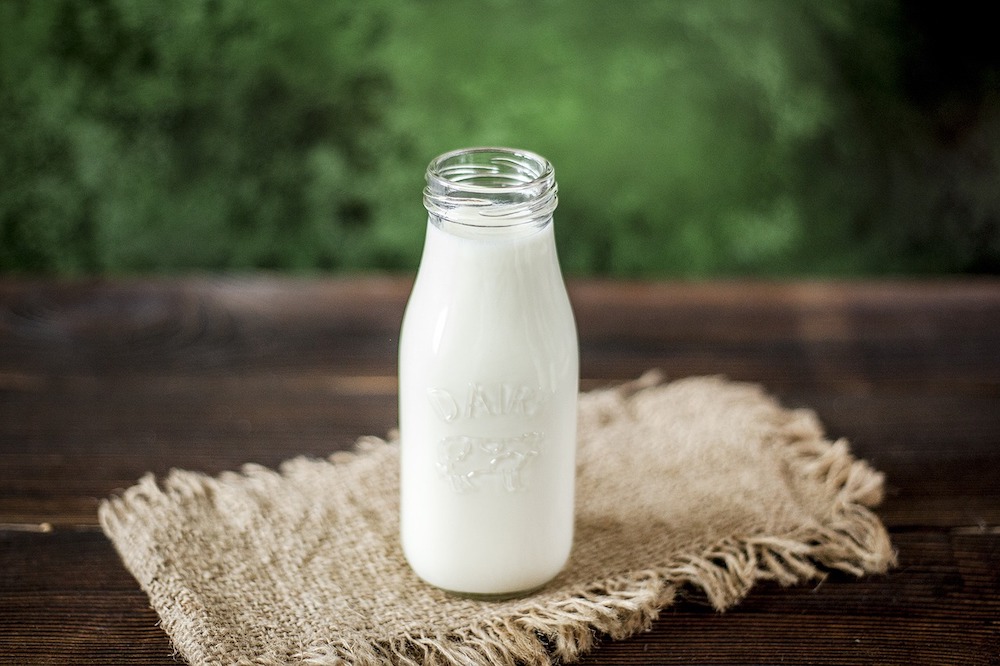Cow’s milk ‘better for the planet’ than soya – study
27th August 2020
Consumers who buy soya milk should switch to cow’s milk if they want to help the planet, a new study suggests.
Consumers who buy soya milk should switch to cow’s milk if they want to help the planet, a new study suggests.
A review of evidence by the Sustainable Food Trust found that 85 litres of milk is produced in the UK for every kilo of soya bean meal consumed by dairy cows – whereas no more than 7.5 litres of soya drink are produced from a kilo of whole soya beans.
As a result, the trust says drinking milk from cows in the UK uses 11 times less soya than consuming drinks made directly from soya. In Europe as a whole, milk from cows is only four times more efficient than soya drinks in terms of soya use, however, as grass is a less productive crop in many countries outside the UK, so the use of concentrates is higher.
Researchers said the environmental impact could be reduced even further if alternative sources of protein were used for livestock feed, or if consumers chose milk from grass-fed cows. Alternatives include rapeseed meal, distillers’ grains and pulse grains, including beans and peas.
Global production of soya bean and palm oils has doubled in the past 20 years and consumption is still rising, according to the trust.
International commodities trader, Cargill, warned last year that it and other companies would not meet their 2014 commitment to eliminate deforestation from the production of agricultural products by 2020.
At the same time the significant increase in the number of fires in the Amazon made headlines internationally, with concern raised about associated greenhouse gas emissions, biodiversity loss and soil degradation.
SFT chief executive, Patrick Holden said: “This is an important study. It shows that livestock farmers could reduce their dependence on imported protein, which is produced at such a high environmental cost, and rely more on home produced feed.
“But it also shows that drinking cows’ milk uses far less soya than drinks made from soya, because most of the milk comes from grass. This highlights the importance of grass, a crop ideally suited to our climate and the grazing animals that turn it into high quality foods we can eat”.
Controversy
The charity was criticised by some following the release of its research, which was carried out with the University of Nottingham and published in the Journal of Applied Animal Nutrition.
In a blog responding to the comments, co-author and SFT policy director Richard Young, wrote that while soya milk makes up only a small part of the UK market – and if beans are organically grown in Europe, the environmental impact is quite small – plant ‘milk’ sales are increasing rapidly. If current trends continue, he warns: ‘We will end up with a population rejecting the dietary proteins and fats that can largely be produced on UK grasslands and depending instead on imported food, much of it produced on former rainforest land, or in other very unsustainable ways’.
While studies comparing the environmental impact of dairy milk and plant-based alternatives give the impression that plant ‘milks’ come out on top, ‘none I have seen are based on UK data or include the latest research findings,” Mr Young wrote.
He also pointed out that more than 80 per cent of the soya used in livestock production in the UK goes to pigs and poultry rather than dairy cows.
Whilst making it clear that the charity opposes intensive dairy farming, Mr Young said it supports grazing livestock in the UK and pointed out that what modern dairy farming needs is ‘much greater consumer understanding of why dairy farmers need to be able to make a living without constantly having to increase herd size and productivity per cow’.
He concluded: ‘That requires consumers to pay a fair price for milk and further pressure on supermarkets to treat dairy farmers fairly, but also use their power to de-intensify rather than constantly intensify the industry.
‘Increasing sales of dairy alternatives may reduce the amount of cows’ milk produced, but this won’t do anything to ensure the milk that is produced comes from more sustainably managed and happier animals – sadly it will do just the opposite.’

